#the fugituve
Text

Now showing on my 90's Fest Movie 🎥 marathon...The Fugitive (1993) on glorious vintage VHS 📼! #movie #movies #drama #actionadventure #TheFugitive #HarrisonFord #TommyLeeJones #SelaWard #JoePantoliano #JulianneMoore #janelynch #jeroenkrabbe #DanielRoebuck #lscottcaldwell #NickSearcy #vintage #vhs #90s #90sfest #durandurantulsas3rdannual90sfest
#movie#movies#drama#action adventure#the fugituve#Harrison Ford#Tommy Lee Jones#joe pantoliano#sela ward#l scott caldwell#Daniel Roebuck#nick searcy#jeroen krabbe#julianne moore#jane lynch#vintage#VHS#90s fest#90s#duran duran tulsa's 3rd annual 90s fest#Spotify
1 note
·
View note
Text
KrK's peculiar arrest
KrK’s peculiar arrest
without bail, theres no law and order in states where bjp rules.
why cant he get the fucking bail?.. is he a threat to the society?..
is he a fucking fugituve?..
is he a fucking terrorist?.. or jehadi?? this is mockery of law. if you have any case against him, just charge the man and release him??
why are you punishing him before hes convicted?.. this is sham.
View On WordPress
0 notes
Text
Remembering the amazing Harriet Tubman, who died on this day, March 10, 1913, in Auburn, New York.
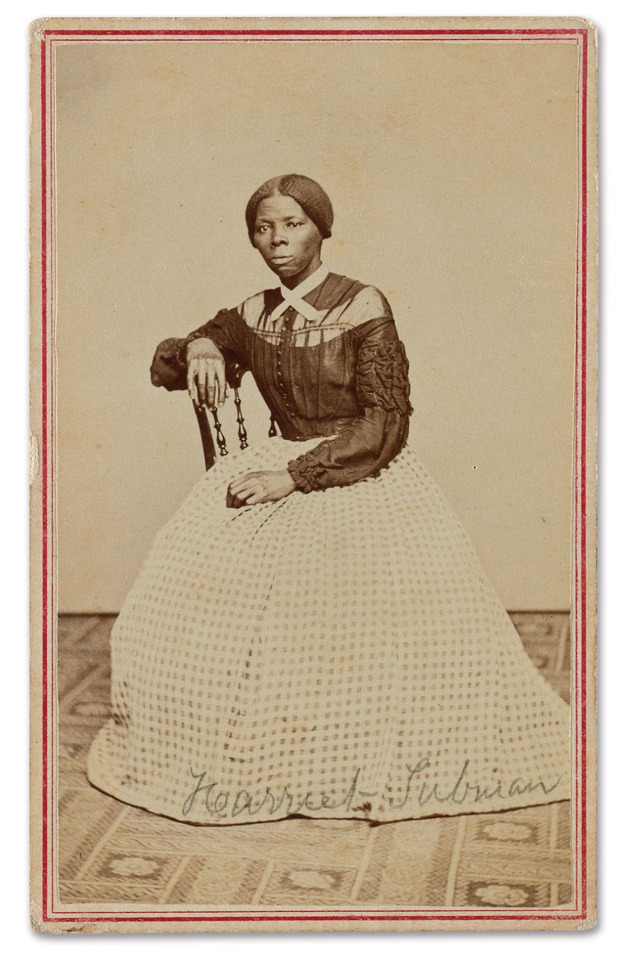
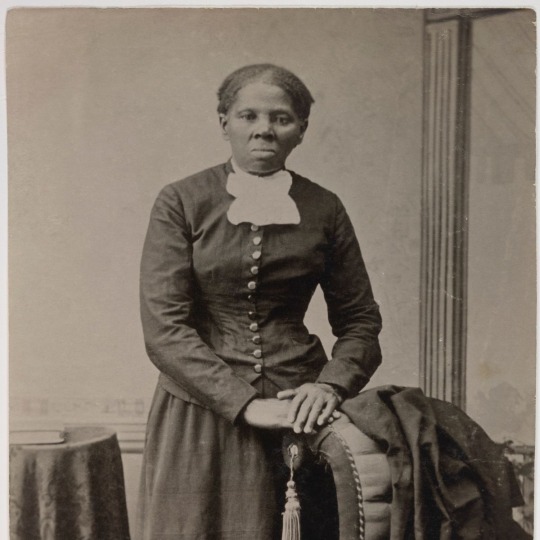
#Harriet Tubman#abolitionist#civil war#african americans rights#underground railroad#slavery#african-american history#civil rights movement#black lives matter#juneteenth#fugitive slave law#juneteeth2020#abolitionists#v#blackhistorymonth#black livers matter movement#auburn ny#fugitives slave law#fugituve slaves#fugtive slave act#emancipation proclamation#union army#abrahamlincoln
1K notes
·
View notes
Text
A chooper is heard in the distance
Mother turning to child~ hush those are the nightly search helicopters
Child~ can I go and look
Mother~ no you can't. Looking at them will make them suspect us of harboring fugituve cheese
1 note
·
View note
Link
0 notes
Text
Rwanda: War Crimes Suspect Bizimana Dead - UN Tribunal
Rwanda: War Crimes Suspect Bizimana Dead – UN Tribunal
[DW] Augustin Bizimana, one of the top suspects wanted over Rwanda’s 1994 genocide, has died. The announcement comes less than a week after the arrest in France of fugituve suspect Felicien Kabuga.
View On WordPress
0 notes
Text
The Edmonson Sisters-Abolitionists
Mary and Emily Edmonson were African-American sisters who lived in Montgomery County, Maryland. Their father, Paul Edmonson, was a freed black man who was able to purchase his own farm. Paul and his wife, Amelia, a slave, had 13 children who were all born into slavery.
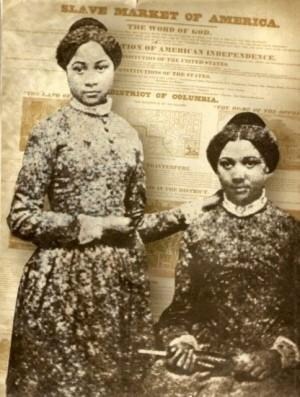
Mary and Emily were more fortunate than most young slave girls of the time, as they were hired to work in wealthy households in Washington D.C,. as servants, and not in the cotton fields. They were also well treated, unlike the majority of other slaves. Still, they had no freedom to go as they pleased and even though they earned a decent wage, it was not theirs to keep. Their pay was given to their master.
In 1848, the slave master of the Edmonson family allowed four of the elder Edmonson daughters to pay for their freedom. After that he no longer allowed this practice for Mary and Emily, along with six of their brothers, and continued to hire them out for his own financial benefit.
On a rainy night on April 15, 1848, Mary and Emily decided to fight for their freedom, alongside 77 other slaves, and boarded the “Pearl” which was set to sail down the Potomac River with a destination to the free state of Philadelphia.
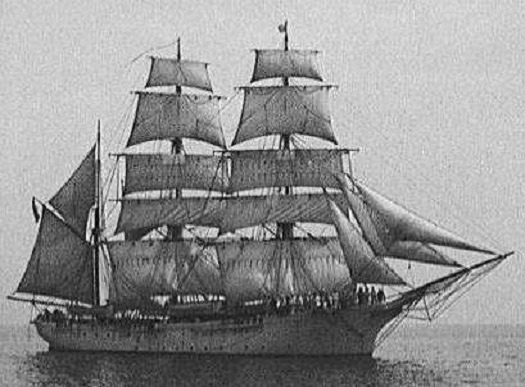
Before it reached its Chesapeake destination, the ship was captured by slaveholders and all slaves aboard the ship were sent to New Orleans to be sold on the prosperous New Orleans slave market. Mary and Emily were placed at the price of $1200 each, and the girls were subjected for days on the open street waiting for a buyer.
A yellow fever epidemic occurred in New Orleans and the sisters were sent back to Virginia by their new slave owner, who was trying to protect his investment from illness. Paul Edmonson was able to enlist the help of Henry Ward Beecher, a minister and abolitionist, who bought the girls’ their freedom. Their brothers received their in 1859 as well.
The Edmonson sisters became abolitionists who spoke out against the illegal institution of slavery and were in attendance at the Fugitive Slave Law Convention in New York, in 1850.
In 2010, a bronze statue of the two sisters was erected in Alexandria, Virginia.
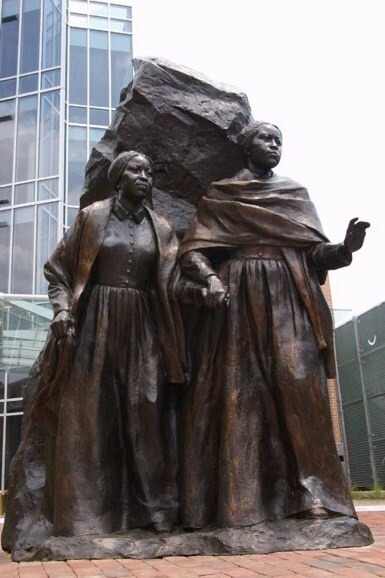
#civil war#slavery#abolitonists#edmonson sisters#fugitive slave law#Fugitive Slave Act#fugituve slaves#virginia#Emancipation Proclamation#abraham lincoln#henry ward beecher#civil rights#African-Americans#African-American history#civil rights movement#1619 project#juneteenth#juneteeth2020#black lives matter#black lives matter movement
135 notes
·
View notes
Text
1619-400th Anniversary of Slavery
Booker T. Washington
“Finally the war closed, and the day of freedom came. It was a momentous and eventful day to all upon our plantation. We had been expecting it. Freedom was in the air, and had been for months. Deserting soldiers returning to their homes were to be seen every day. Others who had been discharged, or whose regiments had been paroled, were constantly passing near our place. The news and mutterings of great events were swiftly carried from one plantation to another.
As the great day grew nearer, there was more singing in the slave quarters than usual. It was bolder, had more ring, and lasted into the night. Most of the verses of the plantation songs had some reference to freedom. There was little, if any, sleep that night. All was excitement and expectancy.”
—Booker T. Washington, “Up from Slavery”
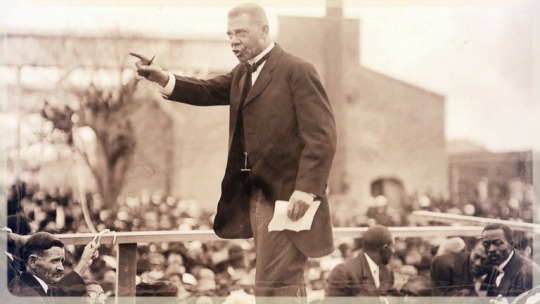
#civil war#abolitionists#slavery#black history month#1619 project#booker t. washington#up from slavery#fugituve slaves#underground railroad#african americans rights
72 notes
·
View notes
Text
1619-400th Anniversary of Slavery
Frederick Douglass
“My mistress was, as I have said, a kind and tenderhearted woman; and in the simplicity of her soul she commenced, when I first went to live with her, to treat me as she supposed one human being ought to treat another. In entering upon the duties of a slaveholder, she did not seem to perceive that I sustained to her the relation of a mere chattel, and that for her to treat me as a human being was not only wrong, but dangerously so.
Slavery proved as injurious to her as it did to me. When I went there, she was a pious, warm, and tender-hearted woman. There was no sorrow or suffering for which she had not a tear. She had bread for the hungry, clothes for the naked, and comfort for every mourner that came within her reach. Slavery soon proved its ability to divest her of these heavenly qualities. Under its influence, the tender heart became stone, and the lamb like disposition gave way to one of tiger-like fierceness.”
-Frederick Douglass, “The Narrative of the Life of Frederick Douglass”
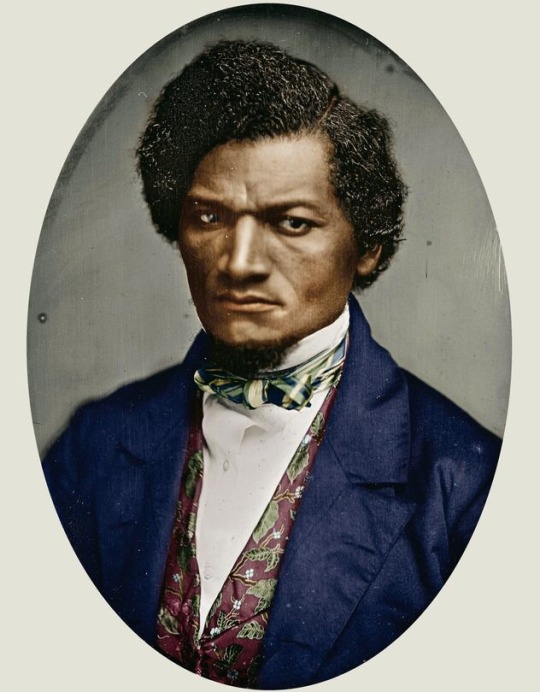
#slavery#abolitionists#civil war#black history month#1619 project#underground railroad#african americans rights#frederick douglass#fugituve slaves#african americans during the civil war
77 notes
·
View notes
Text
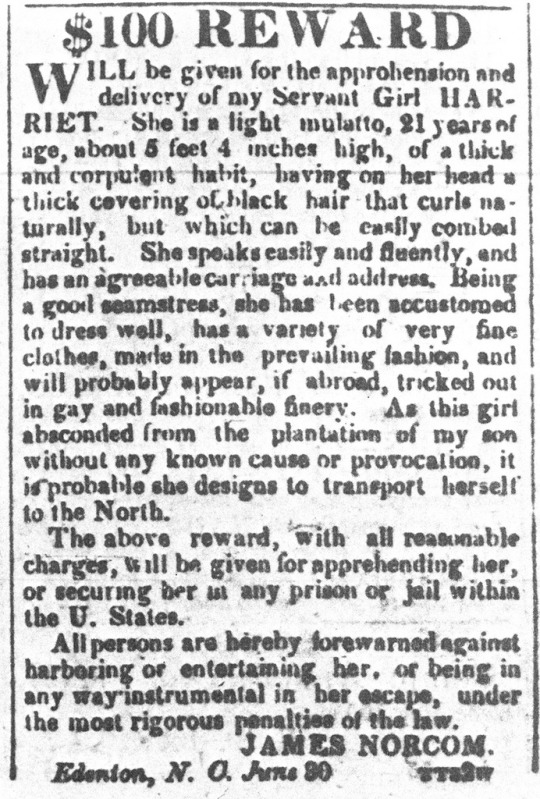
Advertisement for a $100 reward for the return of slave, Harriet Ann Jacobs, by the Flint family. -“American Beacon” newspaper Norfolk, Virginia, July 4, 1835.
Harriet Jacobs would hide in an attic for 7 years from the Flint family.
#1619project-400th Anniversry of Slavery
#slavery#civil war#abolitionists#black history month#underground railroad#african americans rights#1619 project#runaway slaves#fugituve slaves#fugitive slave law
50 notes
·
View notes
Text
1619-400th Anniversary of Slavery
“Every where the years bring to all enough of sin and sorrow; but in slavery the very dawn of life is darkened by these shadows. Even the little child, who is accustomed to wait on her mistress and her children, will learn, before she is twelve years old, why it is that her mistress hates such and such a one among slaves.
Perhaps the child’s own mother is among those hated ones. She listens to violent outbreaks of jealous passion, and cannot help understanding what is the cause. She will become prematurely knowing in evil things. Soon she will learn to tremble when she hears her master’s footfall. She will be compelled to realize that she is no longer a child. If God has bestowed beauty upon her, it will prove her greatest curse. That which commands admiration in the white woman only hastens the degradation of the female slave.”
From “Incidents in the Life of a Slave Girl”, Harriet Ann Jacobs, 1861
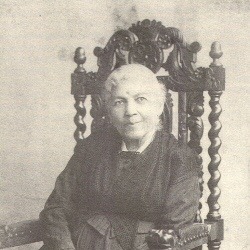
#slavery#civil war#abolitionists#black history month#underground railroad#african americans rights#1619 project#harriet ann jacobs#400th anniversary of slavery#fugituve slaves#fugitive slave act
26 notes
·
View notes
Text
#1619project-400th Anniversary of Slavery-The Emancipation Proclamation
On January 1, 1863, President Lincoln issued the Emancipation Proclamation, which declared all slaves in the rebel states “henceforward shall be free”.
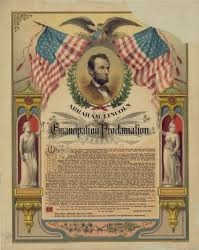
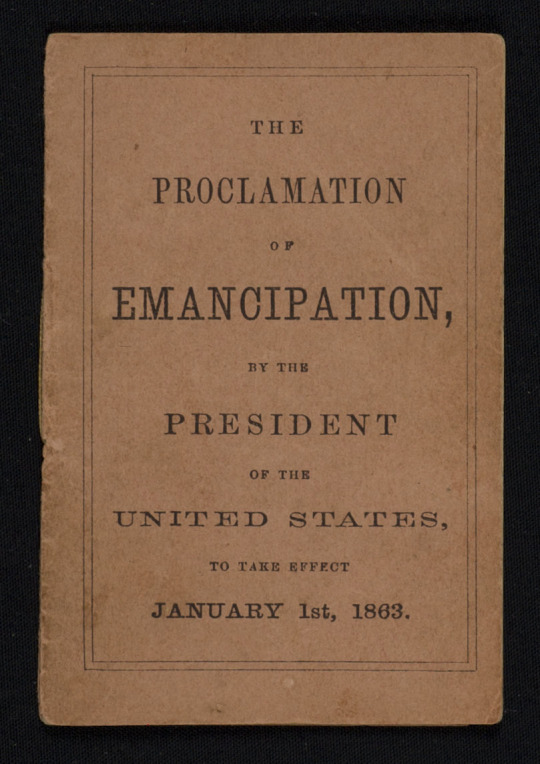
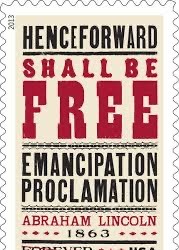

#1619 project#400th anniversary of slavery#african americans rights#african americans during the civil war#civil war#emancipation proclamation#abraham lincoln#fugituve slaves#fugitive slave law
10 notes
·
View notes
Text
1619-The 400th Anniversary of Slavery
In 1619, the first enslaved Africans were brought to what is now the state of Virginia. 2019 is the 400th anniversary of this historic and sad part of our history. I will be commemorating the brave people who helped changed the course of this tragic history, with a post each day.
Nikole Hannah-Jones, staff writer on the New York Times, wrote on August 18, 2019, “The story of 1619 is not a black story, and it’s not a white story; it’s truly an American story.”
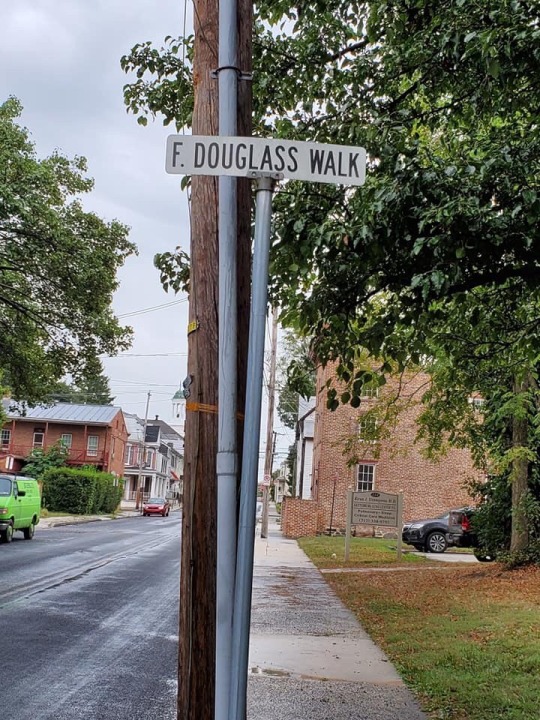
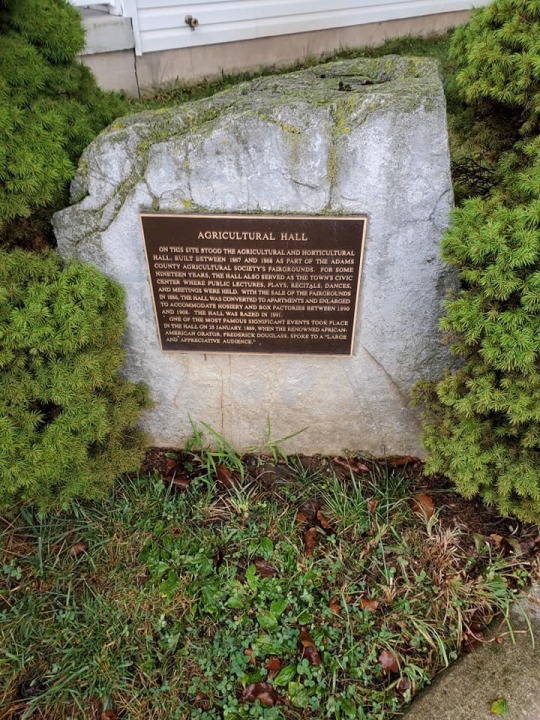
Frederick Douglass, great African-American orator and abolitionist, gave a speech in Gettysburg, Pennsylvania on January 25, 1869. The marker is placed in front of the spot once known as Agricultural Hall on High Street, where he spoke to a “large and appreciative audience.”
#slavery#gettysburg#abolitionists#black history month#1619 project#underground railroad#agricultural hall gettysburg#battle of gettysburg#new york times#african american history#the civil war#frederick douglass#fugitive slave act#fugituve slaves#virginia
40 notes
·
View notes